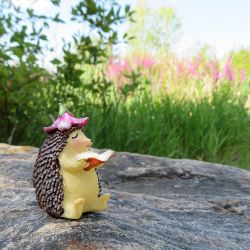Cows to the rescue, truthfulness vs. truth, are pescatarians more ethical than those who eat beef?
“Scientists at the University of Natural Resources and Life Sciences in Vienna found that bacteria living inside a cow’s rumen – one of the four compartments of its stomach – can digest certain plastics, including those used to make single-use packaging. The next step is to identify the microbes responsible, so they can be engineered in labs.”
Can technology that gave us plastics provide a way to make them go away? From Positive News, Cows are being touted as the latest solution to plastic pollution
“The other day, I told a friend that Knoxville is the capital of Tennessee. Five seconds and a blur of fingers later, he said: ‘No, it’s Nashville.’
My statement was obviously not true. But since I sincerely believed in the accuracy of what I was saying, I was nonetheless being truthful. I was mistaken, not mendacious. This distinction between truth and truthfulness is vital, but in danger of being lost in debates over ‘post-truth’ politics and ‘fake news.’”
If we could all, for a moment, be less defensive and perhaps listen to our opponents, we might discover that the Truth has many forms. This essay, from Aeon, seeks to separate truth from truthfulness. I admit I am a fan of the idea. As they write,
“But truthfulness is harder to assess, since it requires us to know what the speaker knows – to peer into their heads. Was it a lie, or an honest mistake? One way to tell is how a person reacts to evidence that their claim is false. If they continue to repeat it regardless, they’re clearly not being truthful. An honest mistake made on Monday and corrected on Tuesday becomes a lie if repeated on Wednesday. …Truth is empirical, but truthfulness is ethical. Truth is the end product; truthfulness a vital element in its production.”
The understanding of truthfulness requires understanding intent, something I claim only The Shadow knows. From Aeon, Lies and honest mistakes
Many vegetarians and vegans initially come to their dietary choices through ethical concerns, later supported by nutritional beliefs. Are there ethical reasons to eat fish but not meat?
“The Bible too includes many nods to vegetarianism. The animals in the Garden of Eden are presented as beloved friends and their killing is only recorded after Eve has defied God and eaten the forbidden fruit. This encouraged the fourth-century archbishop of Constantinople John Chrysostom to rail against the “butchering and cutting up of flesh” as well as its “horrible smells.” With fish, though, the Bible takes a different line. Jesus famously multiplied five barley loaves and two fish into a meal for 5,000 people to eat.”
From The Conversation, Pescatarians are right – why I say eating fish is more ethical than eating meat

